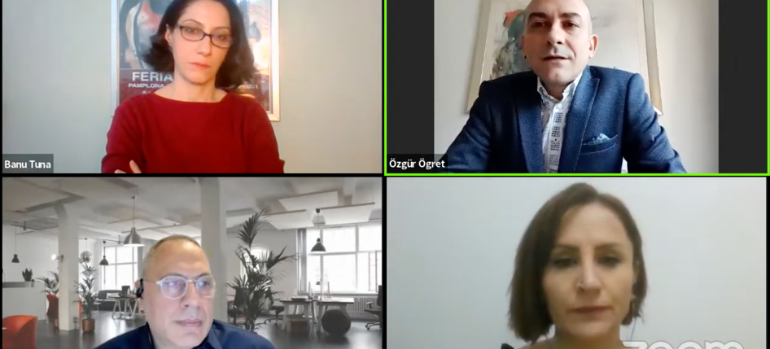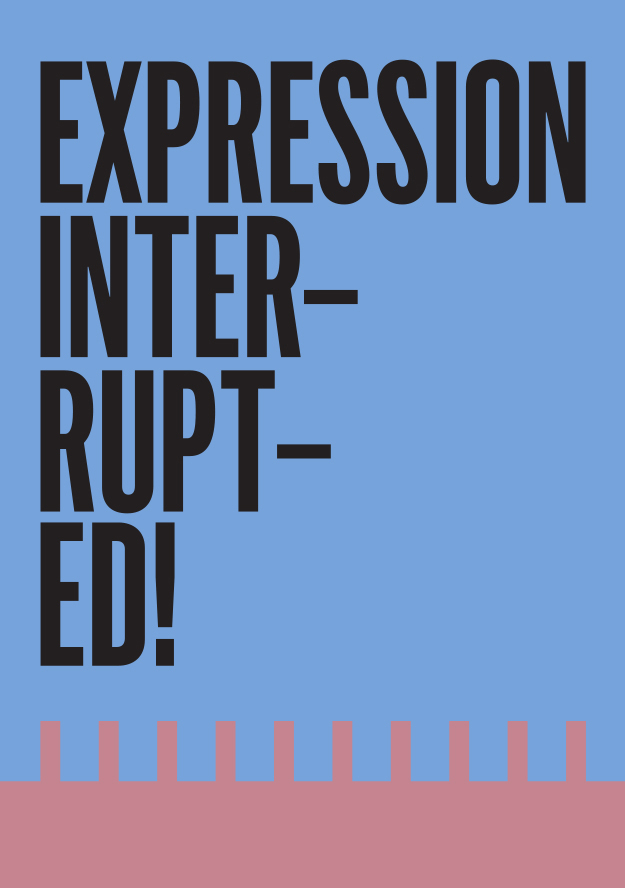Journalists and academics bear the brunt of the massive crackdown on freedom of expression in Turkey. Scores of them are currently subject to criminal investigations or behind bars. This website is dedicated to tracking the legal process against them.


We have spoken about the law on disinformation, bandwidth throttling and other obstructive practices with academic Yaman Akdeniz, TGS İstanbul Branch President Banu Tuna and CPJ Representative to Turkey Özgür Öğret
The Expression Interrupted platform has held an online panel to discuss obstacles to access information and the impact of these obstacles on the freedom of the press and expression. Informatics law expert Prof. Dr. Yaman Akdeniz, Journalists Union of Turkey (TGS) İstanbul Branch President Banu Tuna and Committee for the Protection of Journalists (CPJ) Representative to Turkey Özgür Öğret participated as speakers at the panel held on 20 December 2022 and moderated by journalist Meltem Akyol.
The Law on Amendments to the Press Law and Some Other Laws, also known as the “disinformation” law entered into force on 18 October 2022. Following the bomb attack in Taksim, İstanbul on 13 November, the new legislation was used as justification for implementing bandwidth throttling on social media platforms and messaging applications. Journalist Sinan Aygül was placed in pre-trial detention on 14 December 2022 on charges of “disseminating misleading information” over his Twitter posts on an alleged child abuse incident the previous day and based on the same piece of legislation. Participants of the panel debated these developments and potential scenarios that await social media users, journalists and news websites in 2023.
“The obligation to establish legal entities for social media platforms will also affect elections”
Prof. Dr. Akdeniz, one of the founding members of the Freedom of Expression Association, pointed out that the bandwidth throttling decision after the attack in Taksim was not lawful:
“The Statutory Decree 671 on 15 August 2016 added a new clause to article 60 of the Law on Electronic Communications, giving the President’s Office the power to identify measures required for reasons such as national security, public order, prevention of crime, protecting general health and general morality and the conveying of these measures to the Information and Communication Technologies Authority (BTK) for implementation. The BTK is to notify businesses of the measures required by the president. According to the article of the law, the decision that is the basis of this implementation is to be presented for the approval of the criminal judgeship of peace within 24 hours. However, the bandwidth throttling implemented by the BTK upon the president’s request after the bomb attack in Taksim was carried out without a judge’s approval. Without a judge’s decision being in place, it is not possible to legally challenge such an implementation. I filed a right to information request with the President’s Office a few weeks ago to ask about this. Afterwards, I asked about it to the BTK, also over the Presidency’s Communication Center (CİMER), but got no response. CİMER avoided replying. They told me I had asked two questions in a row, decided my first inquiry was an ‘abuse of the right’ and turned down my request.
“What happens if there is a broadcasting ban on the night of the election? With bans and obstructive means at hand, this is how the government is approaching the 2023 election. Now, it is uncertain whether social media platforms will stay in Turkey as their obligations were widened considerably, as services such as WhatsApp are required to establish representative offices in Turkey. It is not yet clear how they will approach the matter. Social media platforms will have to establish legal entities in Turkey by April 2023. I think this will affect elections.”
“The censorship law concerns not just journalists but the people”
CPJ Representative to Turkey Özgür Öğret stated that the aim of limiting access to the internet is to have only a single voice speak for all:
“It is possible to collect all efforts of the government at obstructing the press under a single umbrella. The government wants to control the debate and the news. The broadcast bans, bandwidth throttling and the flow of court cases targeting journalists all have to do with this. The government wants the news and the debate to take place under the circumstances it desires, from the perspective it favors. This piece of legislation is the latest step to close any gaps and towards obtaining a new censorship apparatus.
“What is disinformation? Who gets to decide? What leads to fear, what makes society worried? How do you measure it? These were the questions. They were answered by the court that put Sinan Aygül in pre-trial detention. According to its decision, the court determined that the ‘Published news will lead to anxiety, fear and panic and affect the internal security of the country given the national agenda.’”
Stating that the legislation concerns not just journalists but also the people, Öğret continued: “Censorship may only be prevented if the consumers of news, that is the people, lend their support to the press when a journalist is arrested, a news item is censored or pressure is applied without differentiating among the press as rightists, leftists, Kurds or Kemalists. If the people can have an abuser tried by tweeting, they can be effective in this too. If, as the people, we take ownership of our right to be informed, there might be a way out.”
“Data and media literacy are the correct ways of combating disinformation”
TGS İstanbul branch President Banu Tuna said that there were many practices to combat disinformation:
“I think data and media literacy are the correct ways of combating disinformation. One cannot combat disinformation through the penal law and by hunting down people on social media. For eight hours after the explosion in Taksim, there was a broadcast ban and bandwidth throttling. While the spread of the news on social media was prevented, the blackout itself led to a feeling of panic. This sort of practice can cause panic among the people. For the government to say that it does not have credible and satisfactory information itself is conveying information, but even this was not done. They set up the conditions for the spread of disinformation and false news themselves.
“With the rise of social media that is a space for public debate, censorship has become a problem not just for the press but for society at large. For a society to arrive at a healthy decision, it needs a space for public debate. The gap left behind by the lack of public debate is filled in by violence. This is a public health problem. That the space for debate has been silenced to such an extent, that public space has been shrunk so much as we approach an election is a public health problem. A healthy society is one which can think and act healthily. The circumstances we are in are circumstances that present an obstacle to society taking healthy decisions and co-existing in peace.”
